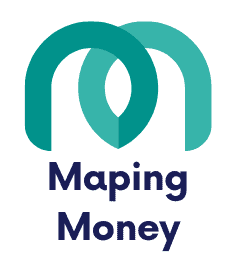3 Tips for Managing Credit Limits and Budgets
To manage your credit limits and budgets, start by understanding your credit limit. This helps prevent overspending and interest charges. Next, create a realistic budget that lists all income and expenses, allowing you to prioritize and make cuts where necessary. Don’t forget to include savings and have a cushion for unexpected costs. Finally, monitor your spending regularly. Use budgeting apps for real-time tracking and set alerts for budget limits. Keeping a close eye on your habits fosters better financial decisions. There’s more to explore that can help you refine these strategies effectively.
Key Takeaways
- Know your credit limit to avoid overspending and potential interest charges.
- Create a realistic budget by tracking all income and expenses, prioritizing essential spending.
- Regularly monitor your spending through budgeting apps for real-time insights and accountability.
- Adjust your budget periodically to ensure it aligns with your financial goals and unexpected expenses.
- Set alerts for budget limits to help maintain financial discipline and avoid overspending.
Understand Your Credit Limit
When you know your credit limit, you can make smarter financial decisions. Understanding this limit isn’t just about numbers; it empowers you to take control of your financial future. Your credit limit represents the maximum amount you can borrow, and knowing it allows you to plan purchases without falling into debt traps.
You’re not just a number; you’re a person with dreams and aspirations. By grasping your credit limit, you can prioritize your spending and focus on what’s truly important. This knowledge helps you avoid overspending and incurring unnecessary interest charges, granting you the freedom to invest in what matters most to you.
Track your spending against this limit regularly. If you find yourself nearing it, think critically about your purchases. Ask yourself if they align with your goals or if they’re simply distractions.
When you assess your credit limit frequently, you foster a relationship of respect and trust with your finances. This awareness puts the power back in your hands, allowing you to make choices that reflect your values and long-term vision for liberation. Embrace this knowledge, and watch your financial landscape transform.
Create a Realistic Budget
Knowing your credit limit sets the stage for creating a realistic budget. To achieve financial freedom, you need a budget that reflects your true income and expenses, not one that feels restrictive. Start by listing all your sources of income. Next, track your fixed expenses, like rent, utilities, and loan payments, alongside variable costs such as groceries and entertainment.
Once you have a clear picture, it’s time to prioritize. Identify areas where you can cut back without sacrificing your quality of life. This isn’t about deprivation; it’s about liberation. You want to allocate funds that allow you to enjoy life while staying within your means.
Make sure to leave room for savings and unexpected expenses, which are essential to maintaining your budget’s flexibility. Aim for a balance that empowers you, rather than overwhelms you. Remember, your budget should be a tool that helps you reach your financial goals, not a set of chains that holds you back.
Regularly revisiting and adjusting your budget as needed can keep you aligned with your financial aspirations. By creating a realistic budget, you’re taking an important step toward financial independence.
Monitor Spending Regularly

To maintain control over your finances, regularly monitoring your spending is essential. By keeping a close eye on your expenses, you empower yourself to make informed decisions and avoid unnecessary debt. Here are three effective strategies to help you stay on top of your spending:
- Use Budgeting Apps: Leverage technology to track your expenses in real-time. Many apps categorize your spending, making it easier to spot trends and adjust as needed.
- Set Weekly Reviews: Carve out time each week to review your spending. Reflecting on your habits helps you recognize where you can cut back and where you’re thriving.
- Create Alerts: Set up alerts for when you approach your budget limits or when spending spikes unexpectedly. This proactive approach keeps you accountable and aware of your financial health.
Frequently Asked Questions
How Can I Negotiate a Higher Credit Limit With My Bank?
To negotiate a higher credit limit, you should gather your financial information, demonstrate responsible credit use, and contact your bank. Express your needs confidently, and don’t hesitate to ask for what you deserve.
What Should I Do if I Exceed My Credit Limit?
If you’ve exceeded your credit limit, treat it like a wake-up call. Assess your spending, adjust your budget, and communicate with your bank. Take control now, and free yourself from financial stress. You’ve got this!
Can Credit Limits Affect My Credit Score?
Yes, credit limits can affect your credit score. When you exceed them, it increases your credit utilization ratio, which can lower your score. Keeping your balances below the limit helps maintain a healthier credit profile.
Are There Benefits to Lowering My Credit Limit?
Lowering your credit limit can help you manage spending and reduce debt temptation. It might improve your credit utilization ratio, leading to a better credit score. Plus, it encourages mindful financial habits, freeing you from unnecessary stress.
How Often Should I Review My Budget?
You should review your budget regularly, ideally monthly. This keeps you aware of your spending, helps you adjust for changes, and guarantees you’re making intentional financial choices that align with your goals and values.




